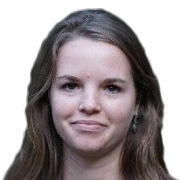Speaker Bio & Abstract

ZOA
The Netherlands
BiographyI am Tessa Speijer, and I am an International Development Master student from the Wageningen University in the Netherlands. At this moment I am doing an internship at the land rights department of ZOA, an international relief an recovery organization supporting vulnerable people affected by violent conflicts and natural disasters in fragile states, by helping them to rebuild their livelihoods. Land is an important economic assent and a source of livelihoods, and therefore fundamental for international development and inseparable from the SDGs. I am looking forward to speak at the Geo4SGGs session at the Geospatial World Forum, and I am interested in what other people think about the subject.AbstractLand, as property and as a resource is one of the most important assets in Africa and elsewhere. It is also a source of identity and belonging. ZOA is implementing land tenure projects in several countries in Sub Saharan Africa. These projects contribute to various SDGs such as; SDG 1: Ending poverty in all its form everywhere; SDG 2: Ending hunger, achieving food security and improved nutrition and promote sustainable agriculture; and SDG 5: Achieving gender equality and empower all women and girls. This presentation will give an in-depth introduction about ZOA’s land rights work in northern Uganda. ZOA‘s work in Acholi region of Uganda represents a dual project; on the one hand the project focusses on enhancing land tenure security, by promoting land tenure mediation, land tenure registration and certification using Certificates of Customary Ownership (CCO). On the other hand, the project aims to promote agricultural development. The presentation gives insights into the challenges of promoting land tenure security in a customary setting where the relationship between customary and statutory law creates tensions. Land rights work is an ongoing issue of global relevance, that has gained a lot of attention in recent years. This presentation will elaborate on why land rights are so important for achieving the SDGs, how the SDGs are interwoven in the specific project in Uganda, and how bottom-up and top-down approaches need to complement each other if relevant and sustainable progress is to be made in achieving the SDGs.